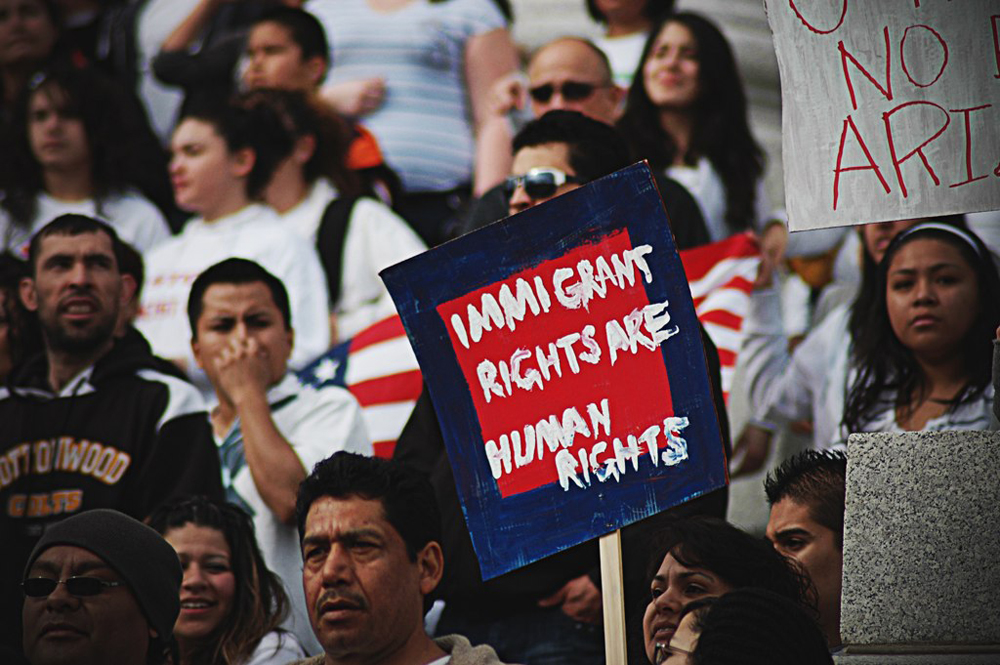| << Chapter < Page | Chapter >> Page > |

As both legal and illegal immigrants, and with high population numbers, Mexican Americans are often the target of stereotyping, racism, and discrimination. A harsh example of this is in Arizona, where a new stringent immigration law—known as SB 1070 (for Senate Bill 1070)—has caused a nationwide controversy. The law requires that during a lawful stop, detention, or arrest, Arizona police officers must establish the immigration status of anyone they suspect may be here illegally. The law makes it a crime for individuals to fail to have documents confirming their legal status, and it gives police officers the right to detain people they suspect may be in the country illegally.
To many, the most troublesome aspect of this law is the latitude it affords police officers in terms of whose citizenship they may question. Having “reasonable suspicion that the person is an alien who is unlawfully present in the United States” is reason enough to demand immigration papers (Senate Bill 1070 2010). Critics say this law will encourage racial profiling (the illegal practice of law enforcement using race as a basis for suspecting someone of a crime), making it hazardous to be caught “Driving While Brown,” a takeoff on the legal term Driving While Intoxicated (DWI) or the slang reference of “Driving While Black.” Driving While Brown refers to the likelihood of getting pulled over just for being nonwhite.
SB 1070 has been the subject of many lawsuits, from parties as diverse as Arizona police officers, the American Civil Liberties Union, and even the federal government, which is suing on the basis of Arizona contradicting federal immigration laws (ACLU 2011). The future of SB 1070 is uncertain, but many other states have tried or are trying to pass similar measures. Do you think such measures are appropriate?
If ever a category was hard to define, the various groups lumped under the name “Arab American” is it. After all, Hispanic Americans or Asian Americans are so designated because of their counties of origin. But for Arab Americans, their country of origin—Arabia—has not existed for centuries. In addition, Arab Americans represent all religious practices, despite there being a stereotype of them as Islamic. As Myers (2007) asserts, not all Arabs are Muslim, and not all Muslims are Arab, complicating the stereotype of what it means to be an Arab American. Geographically, the Arab region comprises the Middle East and parts of northern Africa. People whose ancestry lies in that area or who speak primarily Arabic may consider themselves Arabs.
The U.S. Census has struggled with the issue of Arab identity. The 2010 Census, as in previous years, did not offer an “Arab” box to check under the question of race. Individuals who want to be counted as Arabs had to check the box for “Some other race” and then write in their race. However, when the Census data is tallied, they will be marked as white. This is problematic, however, denying Arab Americans opportunities for federal assistance.

Notification Switch
Would you like to follow the 'Introduction to sociology' conversation and receive update notifications?